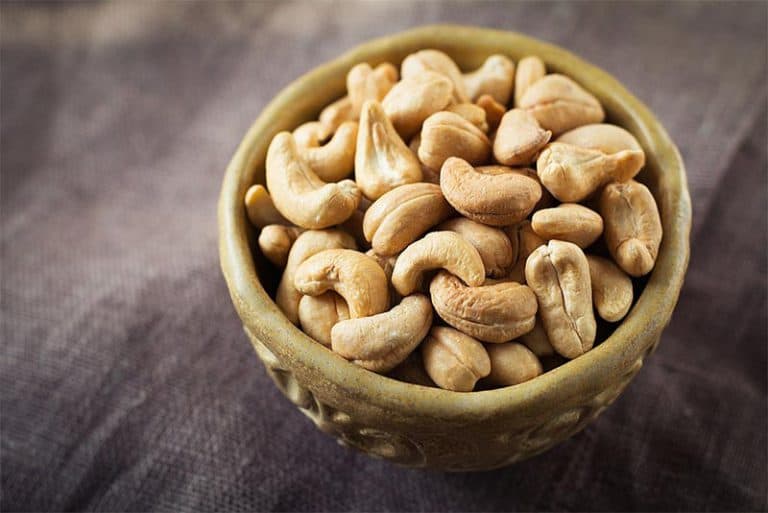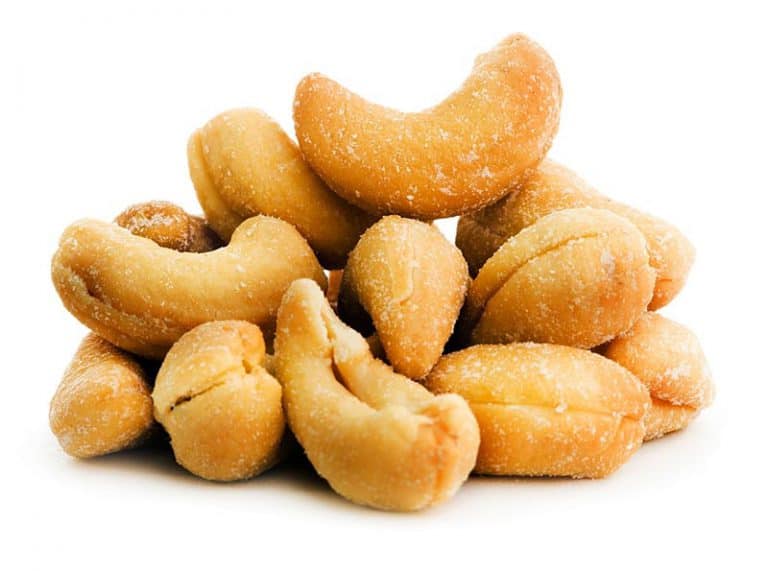About cashew nuts
Although currently grown in many places, the origin of cashew is from northeastern Brazil. It was brought to India by the Spaniards in the 16th century, when the Portuguese empire also brought cashew nuts to their colonial countries in Africa, such as Kongo or Mozambique. Commercial cashew trees today are grown mainly in places with lots of rain and wet weather throughout the year like in the Southeast region of Vietnam.

Cashew nuts are grown today in places with lots of rain and wet weather all year round like in the Southeast – Vietnam.
From India, cashew trees then quickly spread throughout Southeast Asia such as Vietnam, Indonesia, Cambodia, … This tree is very suitable for growing in areas with tropical climate conditions at height from sea level to 1,000 m with annual rainfall from 400 to 4,000 mm.
Currently, in addition to South American countries like Brazil, cashew trees are grown mainly in India, and Southeast Asian countries (Vietnam, Indonesia, Thailand, Cambodia, East Timo, …).
Effect of cashews

Not only good for people with cancer, cashews also help the nervous system healthy,
Preventing cancer
Cashew contains proanthocyanidins – proven flavonoids to prevent cancer cells from reproducing and destroying cancer cells.
There have been a number of scientific studies showing that the high copper content in cashews also helps to avoid free radicals as well as provide a source of phytochemicals and beneficial antioxidants for the body.
Good for the nervous system
Not only good for people with cancer, the effect of cashews also helps the nervous system because it is high in magnesium. This is one of the top uses of eating cashew.
The high magnesium content in the cashew kernel provides great benefits for the nervous system and muscles, helping to keep blood vessels and muscles relaxed and rested by slowing the flow of calcium into cells. nerve, which reduces the frequency of migraine attacks, lowers blood pressure and helps prevent heart attacks.
Good for heart
Like some other nuts such as macca, almonds, chestnuts, … cashews are also good for heart health.
Magnesium in cashews can help lower blood pressure and prevent heart attacks. Coronary heart disease and cardiovascular risk can be reduced by regularly eating cashews because they do not contain cholesterol and antioxidants.
How to preserve salt roasted cashews

How to preserve salt roasted cashews
Avoid wet areas
Cashews will be prone to watery, moldy due to exposure to high humidity. This is when eating salted cashew nuts, you should not put on the plate, but should be stored immediately in a sealed box to make sure the nuts are always crispy and delicious.
Store in a closed container or vacuum bag
The properties of roasted cashew nuts are very hygroscopic, so when storing, you need to put them in sealed boxes or vacuum bags, to minimize the air that can penetrate into the product. This box can be plastic, glass, porcelain crockery boxes because salted cashews are not too inferior to the container.
Keep away from smells
When storing salted cashews in boxes, bags, … you also need to avoid bags or containers that have a spicy, pungent… These smells are often attached to cashew nuts, making it no longer delicious as before. When taking cashew nuts out to eat, you should not share them with nuts or fruits or spices like that because they will make cashews lose their appetite.
So how much to eat, you should take it there to make sure the salt roasted cashews are not sticky with other odors, causing the loss of cashew odor. Not to mention taking out a lot, not eating all will make the kernel lose appetite when clinging too much dust of silk shells.
The recommended time to use salt roasted cashews after opening or opening the bag is from 1 to 4 months, avoiding the case of too long roasted cashew nuts to lose the characteristic taste and nutrients in cashews.
